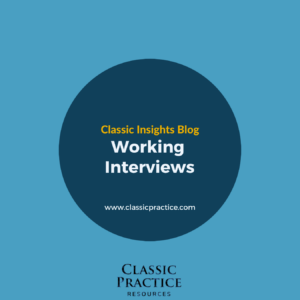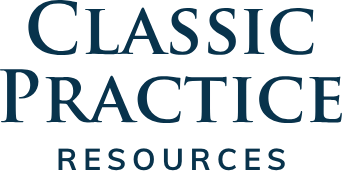Working Interviews in Dentistry: Are They Worth the Risk?
Working interviews might seem like a great way to assess potential hires, but they come with hidden challenges. Not only are you legally required to pay the candidate, but you may not get a true picture of their long-term suitability. Instead, upgrading your interview process with well-designed skill tests can provide better insight into a candidate’s capabilities without the complications of a working interview.
Here’s a simple guide to help you refine your hiring process and avoid the pitfalls of working interviews:
Why Working Interviews Are Problematic:
- Employment Obligation: When candidates perform tasks that contribute to the business, they become employees, requiring payment.
- Risk of Unemployment Claims: In some states, candidates can file for unemployment even after a short working interview.
- “Outerview” Not Interview: Candidates often present their best selves during a working interview, which may not reflect their true work ethic or performance once hired.
A Better Approach: Skill-Based Interviews
Here’s how you can revamp your interview process to get a true assessment of the candidate’s fit for your practice:
- Create a Written Test
Prepare a written test for front office candidates to complete during the interview. Include questions that evaluate their thinking, problem-solving skills, and ability to handle common dental office scenarios. For example:- How would you handle a patient upset about an insurance payment?
- What would you do if you encounter a bad phone number while confirming appointments?
- Math Questions for Front Desk Candidates
Include basic math questions to assess their ability to calculate percentages and payment plans. For example:- What is 20% of $1080? Being able to handle these tasks is crucial for roles involving accounts receivable and payment arrangements.
- Scenario-Based Questions
Test the candidate’s decision-making process with real-life scenarios. For example:- If you can’t fill the hygiene schedule for the next day, what would you do? This helps you understand how they think and whether they are proactive problem-solvers or prone to taking shortcuts.
- Personality Evaluation
After the written test, shift the focus to getting to know the candidate’s personality. Use questions like:- What do you like to do on the weekends?
- What was your favorite part of your last job? This helps you gauge their enthusiasm, personality fit, and potential long-term commitment to the role.
- Role-Playing for Key Skills
Have candidates role-play with a current employee to see how they handle patient interactions, especially when discussing financial matters or resolving issues.
Checklist for the Interview Process:
- Review Resumes for Stability: Look for candidates with longevity in past roles (e.g., 2-5 years at each job).
- Written Test: Include math, critical thinking, and scenario-based questions.
- Personality Questions: Understand the candidate’s temperament and cultural fit.
- Role-Play Scenarios: Test their ability to handle challenging patient interactions.
- Math Skills: Evaluate their ability to calculate percentages and handle billing-related tasks.
The Final Step: Trust the Process
Once you’ve gone through the testing and interview process, trust your instincts and don’t hesitate to hire a candidate who excels. While interviews can’t predict everything, this enhanced process gives you a clearer picture of whether a candidate is a good long-term fit.
By stepping up your interview game, you’ll save time, avoid legal headaches, and increase your chances of hiring the right person without the need for working interviews.




